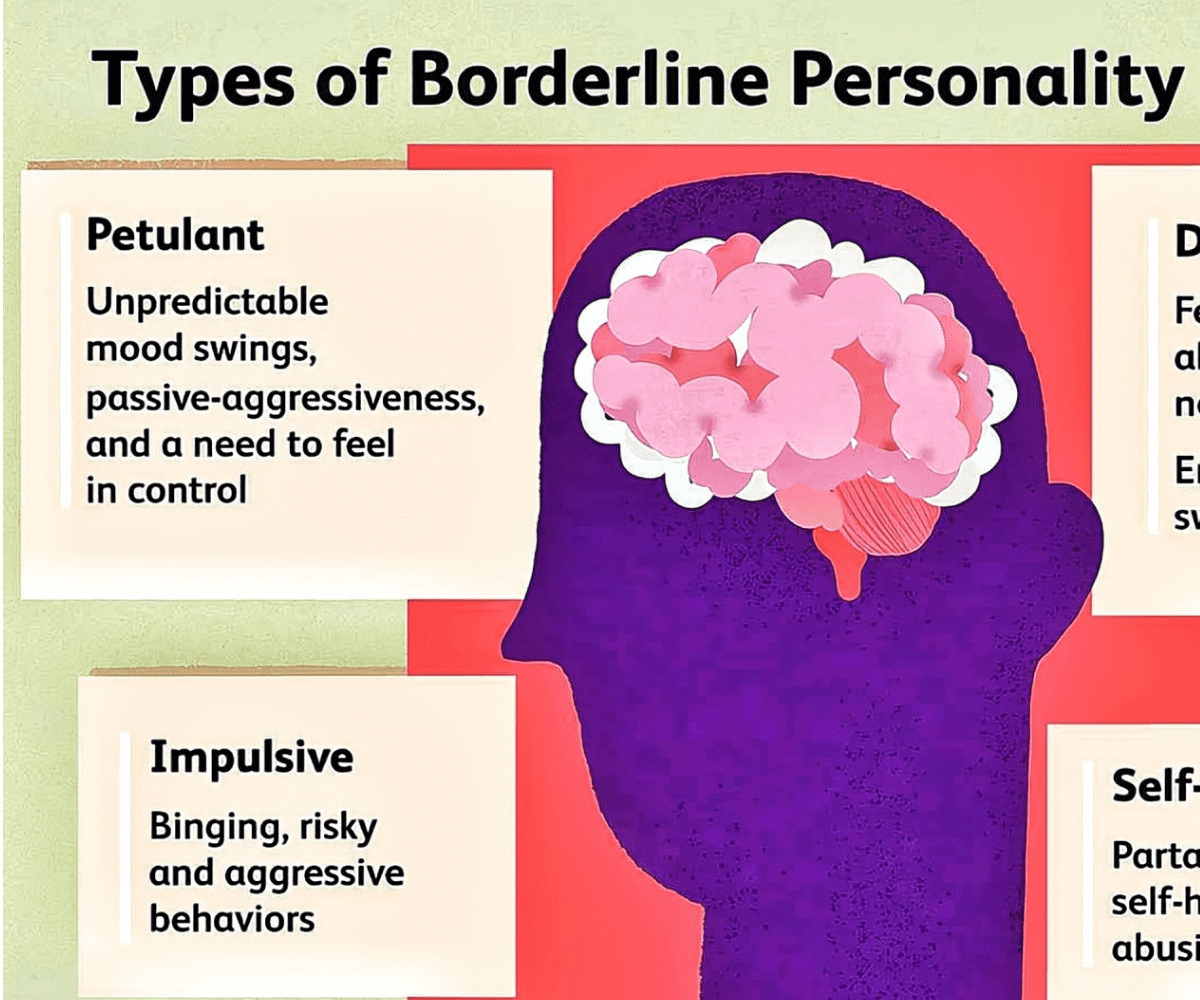Borderline Personality Disorder (BPD) is a complex and often misunderstood mental health condition. In this guide, we’ll focus on one type of Borderline Personality Disorder (BPD) called petulant BPD. This kind can be tough to handle because it involves being often irritated, angry, and rebellious. These feelings can really affect how someone lives and works. We’ll cover what BPD is, what causes it, and ways to deal with it effectively.


What is Petulant Borderline Personality Disorder?
Petulant BPD is a type of Borderline Personality Disorder. People with this type often feel very irritable and angry a lot. They might also act rebellious. They have strong emotions, act without thinking, and find it hard to keep relationships steady. Moreover, they might get upset easily, change moods a lot, and get mad at small things or people easily.
Symptoms of Petulant BPD
The symptoms of BPD can vary in severity and intensity, but they typically include:
- Being easily upset and angry: People with BPD might often feel really mad or frustrated, leading them to yell or act aggressively.
- Defying rules: They might keep breaking rules or going against what they’re told, not caring about what’s normal or expected.
- Doing things without thinking: They tend to do things without really thinking about the consequences, like spending too much money or taking drugs.
- Changing moods quickly: They can go from being super angry to very sad or anxious in a short time.
- Trouble with relationships: Because of their strong emotions and impulsive actions, they find it hard to keep relationships steady.
- Feeling empty or bored: Sometimes, people might feel empty or bored a lot, so they might do risky things to feel better.
Hurting themselves or thinking about suicide: Sometimes, people with petulant BPD might hurt themselves or think about ending their life.
Furthermore, It’s important to know that the signs of BPD can be different for each person, and not everyone will show all the symptoms listed.
Causes of Petulant BPD
The reasons why someone might develop petulant borderline personality disorder (BPD) are not completely clear. However, experts think that a mix of genes, environment, and how the brain works might play a role in causing it. Some potential causes include:
- Some people might inherit BPD: Some studies say it could run in families, including the petulant type.
- Bad things happening to you when you were young, like being hurt or ignored, might make it more likely for you to have BPD.
- People with BPD might have differences in their brains that affect their emotions, impulses, and relationships.
It’s essential to understand that the reasons behind petulant BPD are complicated and have many parts. No one thing can completely explain how it develops.
Managing Petulant BPD
Coping with difficult behavior in BPD can be tough, but with the right mix of treatments and help, people can learn to handle their symptoms better and boost their quality of life. Here are some effective strategies for managing BPD.
Psychotherapy
Psychotherapy, like dialectical behavior therapy (DBT) and cognitive-behavioral therapy (CBT), helps treat BPD and its types, like petulant BPD. Moreover, these therapies teach coping skills, managing emotions, and bettering relationships.
Medication
Doctors don’t have a special pill for tough BPD, but they might give you some meds to help with different issues. For example, they could give you mood stabilizers for mood swings or antidepressants for feelings of sadness or worry that go with it.
Mindfulness and relaxation techniques
Doing things like mindfulness meditation, taking deep breaths, and relaxing your muscles can help people with stubborn BPD handle their strong feelings and do less impulsive things.
Support groups
Joining a support group for individuals with BPD can provide a sense of community, validation, and shared experiences, which can be beneficial for managing petulant BPD.
Family education and support
Involving family members and loved ones in the treatment process can be helpful. Family education and support can help them learn and have the skills to understand and support someone with intense BPD.
Lifestyle changes
Living healthy by exercising, eating well, and sleeping enough can make you feel better both emotionally and physically. This can help handle petulant BPD better. Remember, dealing with BPD takes time, and trying different treatments might be needed to find what works best for you.


Conclusion
People with Petulant Borderline Personality Disorder (BPD) face tough challenges. It’s a complex condition that needs careful management. Moreover, by knowing the signs, reasons, and good ways to handle it, people can aim for a better life and healthier ways to copes. BPD.
FAQs
Q1: Is petulant BPD a separate disorder or a subtype of BPD?
A1: BPD is not a separate disorder but rather a subtype or presentation of Borderline Personality Disorder (BPD). It is characterized by a persistent pattern of irritability, anger outbursts, and defiant behaviors.
Q2: Can petulant BPD be cured?
A2: Although there’s no cure for BPD or any other type of BPD, people can manage it well with therapy, medicine (if needed), and lifestyle changes. With the right help, they can learn to handle their symptoms better and have a better life.
Q3: Is petulant BPD more common in men or women?
A3: BPD, including petulant BPD, is more commonly diagnosed in women than in men. However, this may be due to various factors, such as gender biases in diagnosis or differences in help-seeking behaviors. BPD can occur in individuals of any gender.
Q4: Can childhood trauma cause petulant BPD?
A4: Childhood trauma, like being hurt physically or emotionally, or feeling abandoned, can make it more likely for someone to have a certain kind of personality disorder called BPD, especially the petulant type. But not everyone with BPD had a rough childhood. Furthermore, things like genes and how the brain works could also be part of why someone has it.
Q5: Can petulant BPD be managed without medication?
A5: Yes, petulant BPD can be managed without medication in some cases. Therapy like DBT and CBT, along with relaxation methods, support from others, learning about BPD, and lifestyle adjustments, can help handle BPD symptoms without medication. But sometimes, meds like mood stabilizers or antidepressants might be needed for certain issues like mood swings or depression. Moreover, It’s important to talk with a mental health expert before deciding on medication.
For more, Click here

